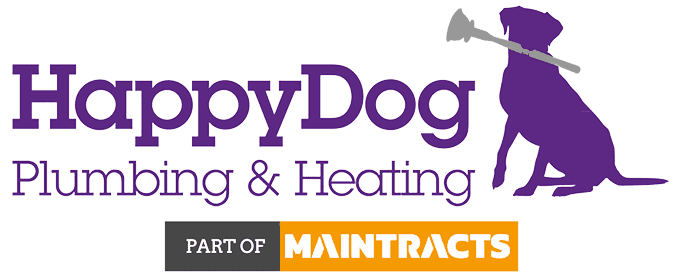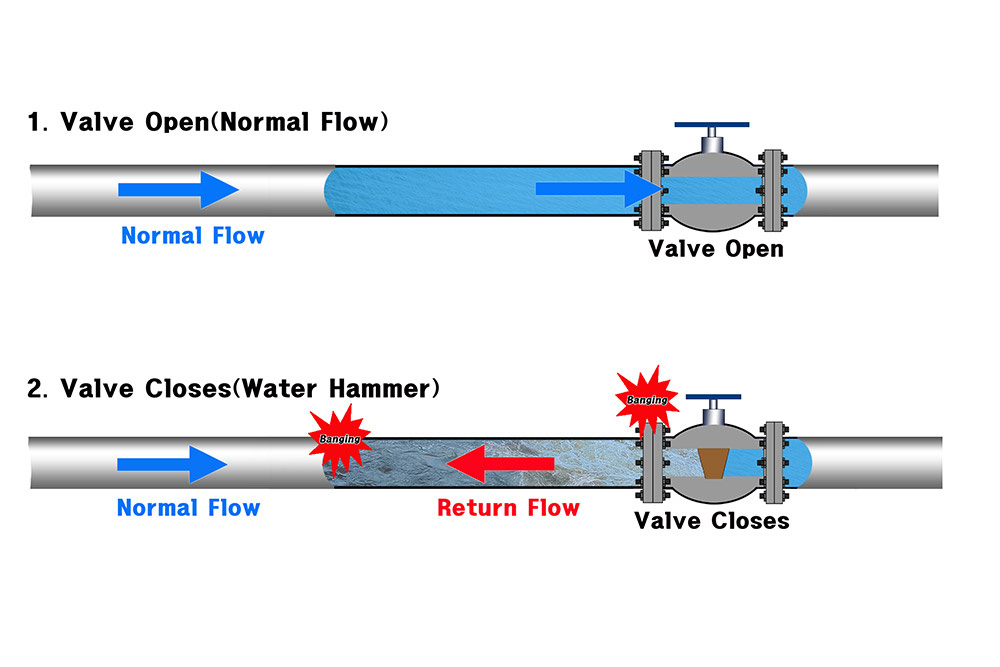The noise of water hammer is as disturbing to your ears as it is to the health of your plumbing system. Therefore, it is prudent to identify the reasons behind this noise and figure out the most appropriate solution. In this blog, you will probably relate to at least one of the reasons behind the water hammer sound you are experiencing or have experienced in the past at home. Not only this, but you will also be able to identify the applicable solutions and preventive measures to be adopted to secure the good working conditions of your system. So, let’s begin;
What Is Water Hammer?
So, what is exactly is water hammer, I hear you ask? Well, water hammer or hydraulic shock, is the force or pressure that results from a sudden change in the momentum of the fluid in motion. The normal pressure is anywhere between 30 to 55 psi. So, anything beyond this range is likely to cause disturbances.
Whenever the continuous flow of the water in pipes is stopped by a sudden closure of a tap or valve, the fluid-in-motion experiences a sudden halt and a backward shockwave is generated in the pipes or the entire plumbing system, causing ripples and loud banging noise in pipes. The sound produced is very similar to hammering, hence its name!
What Causes Water Hammer?
Understanding the underlying causes behind water hammer is essential to prevent it from recurring and further damaging your entire plumbing system.
Sudden Closure Of Valves
When the valves are suddenly closed, there is an unanticipated pause in the flow, thus causing a high-pressure surge and turmoil in pipes. This cause is common in the case of solenoid valves and quarter-turn valves.
Loose Pipe System
When the pipes are loosely fitted, even the mildest of shockwaves create more than an obvious sound. So, be it hidden or external pipework, you are advised to keep a regular check on their bolts, joists and loose straps. Apart from loose pipes, loose valves are also the culprits in creating rattling sounds and disturbances in the system.
Air Pockets
Air trapped inside the pipes or the air pockets in the pipes gets disturbed by the sudden flow of liquid, leading to a water hammer.
Clogged Air Chambers
Air chambers in pipes get blocked due to residue of minerals found in water. This blockage prevents the water pressure shock from being absorbed. The water hammer effect is thus, experienced with a thud.
Vertical Pipes
When water flows through vertical pipes in an upward direction, any sudden change in its momentum sends a high-speed shockwave back to the system, causing a water hammer.
Faulty Or Incorrectly Placed Check Valves
Check valves or non-return valves are specifically designed to prevent backflow in the system. But when these valves start leaking or are not positioned correctly, they result in a water hammer.
Water Ripples In The Tank
If your water tank has a floating valve system, it constantly works on closing and opening the valve, thus creating an echo in pipes, resulting in a water hammer.
Are There Any Signs Of Water Hammer?
Apart from the usual banging noise, there are a few more reasons that can be considered as signs of water hammering issues in your plumbing system. You also need to note that the bigger the noise of hammering, the more serious the concern is with your plumbing system. Now, here are a few more signs:
- Any unusual vibration, shaking or rattling of the pipes or closure of taps/valves.
- Visible leakage around pipes or valves, as well as moisture or warm spots on the pipes, is an effect of the continuous water hammer effect.
- Damage to the pipes because of the underlying aeration issue causes screeching noise, shakes, and other round-the-clock problems. If not diagnosed or rectified on time, the size of the problem increases.
How Can Water Hammer Noise Be Stopped?
Looking at the extreme adverse effects of water hammering, it is highly recommended that all the necessary actions are taken to stop it as soon as it is diagnosed. Have a look at these impacts of hydraulic shock first:
- Damage to pipes in the form of leaks, cracks, and even bursts of the entire pipeline.
- Damage to the components of the flow system, valves and pumps.
- Damage to the infrastructure and the affected electrical structure.
- Massive maintenance and repair expenses due to increased operational costs.
Now that you have learnt the vital impact of ignoring the signs of water hammering, it is time to learn how to handle water hammer repair, once it occurs:
Secure The Pipes
Loose pipes are a big no if you don’t want to face the grievances of water hammering. So, you need to secure the loose pipes with the help of new pipe straps or tighten the existing pipe straps, joists or studs. In case the areas that need fastening are not easily accessible, you need to call plumbing experts in your area.
Foam Insulation
The pipes generate sounds when they get triggered because of the shockwaves. This sound can be minimised or completely avoided by wrapping the pipe with foam. Foam insulation is also helpful in winter, as it prevents the pipes from freezing.
Lower The Response Time Of the Solenoid Valve
If your plumbing system has a Solenoid Valve, it is likely to cause a water hammer when the response time of the valve is too quick. Quick response time means a sudden pause in the flow of the water. So, the solution is to lower the response time.
Water Pressure Testing
It is recommended that a water pressure testing regulator be installed near the main water line, as it will monitor the pressure of the water moving into your home and prevent damage that might otherwise happen to your heavy appliances. Alternatively, an air chamber can also be installed to check the pressure.
Installation Of Water Hammer arrestor
Arrestors make use of springs and air bladders to capture any extra pressure and minimise the shockwave. Also, unlike the air chambers, here you are not required to drain water out after every few months.
If you have already tried out all the above-provided solution options and have also invested in preventive maintenance, but the problem still exists, then now it is time to call the plumbing experts. A qualified and trustworthy plumber will identify the cause of noisy pipes at your property and come up with a solution which is durable and ensures the longevity of the system. You know where we are if you need us.

